Memorandum is a canadien film of genre Documentary directed by Donald Brittain
Memorandum (1967)
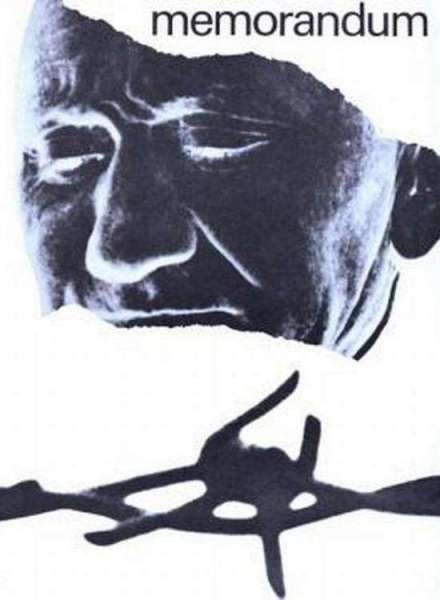
If you like this film, let us know!
Length 58minutes
Directed by Donald Brittain
OriginCanada
Genres Documentary
Themes Films about racism, Films about religion, Documentary films about racism, Documentary films about law, Documentary films about war, Documentary films about historical events, Documentaire sur une personnalité, Documentary films about religion, Political films, Films about Jews and Judaism, Documentary films about World War II
Rating75%










Memorandum is a one-hour 1965 documentary co-directed by Donald Brittain and John Spotton, following Bernard Laufer, a Jewish Holocaust survivor, on an emotional pilgrimage back to the Bergen-Belsen concentration camp. Produced by John Kemeny for the National Film Board of Canada, the film received several awards including a Golden Gate Award from the San Francisco International Film Festival. Considered by many critics to be Brittain's finest work, the film’s title refers to Hitler’s memorandum about the “final solution.”
A detailed analysis of the film's structure is available in Ken Dancyger's The Technique of Film and Video Editing: History, Theory and Practice.
Comments
Leave comment :
Suggestions of similar film to Memorandum
There are 6 films with the same director, 8860 with the same cinematographic genres, 12785 films with the same themes (including 60 films with the same 11 themes than Memorandum), to have finally 70 suggestions of similar films.If you liked Memorandum, you will probably like those similar films :

Fields of Sacrifice (1964)
, 38minutesDirected by Donald Brittain
Origin Canada
Genres War, Documentary
Themes Documentary films about war, Documentary films about historical events
Actors Douglas Rain
Rating70%





 , 44minutes
, 44minutesDirected by Donald Brittain, Don Owen
Origin Canada
Genres Documentary
Themes Films about writers, Films about music and musicians, Documentary films about music and musicians, Documentaire sur une personnalité
Actors Donald Brittain
Rating73%





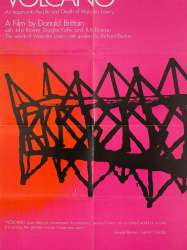 , 1h40
, 1h40Directed by Donald Brittain
Origin Canada
Genres Documentary
Themes Films about writers, Documentaire sur une personnalité
Actors Richard Burton, Donald Brittain, Marjorie Bonner
Rating70%





 , 58minutes
, 58minutesDirected by Donald Brittain
Origin Canada
Genres Documentary
Themes Documentary films about politics, Political films
Actors Donald Brittain
 , 1h55
, 1h55Directed by Donald Brittain
Origin Canada
Genres Documentary
Themes Films about the labor movement, Documentary films about politics, Political films
Actors Maury Chaykin, Donald Brittain, R.H. Thomson
Rating73%





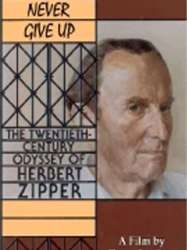 , 40minutes
, 40minutesDirected by Terry Sanders
Origin USA
Genres Documentary
Themes Films about music and musicians, Films about racism, Films about religion, Documentary films about racism, Documentary films about law, Documentary films about war, Documentary films about historical events, Documentary films about music and musicians, Documentaire sur une personnalité, Documentary films about religion, Films about classical music and musicians, Musical films, Political films, Films about Jews and Judaism, Documentary films about World War II
Rating59%





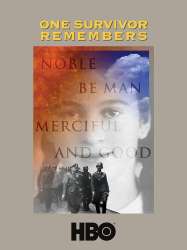
One Survivor Remembers (1996)
, 39minutesOrigin USA
Genres Documentary, Historical
Themes Films about racism, Films about religion, Documentary films about racism, Documentary films about law, Documentary films about war, Documentary films about historical events, Documentaire sur une personnalité, Documentary films about religion, Political films, Films about Jews and Judaism, Documentary films about World War II
Actors Peter Thomas
Rating78%





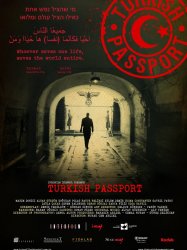
Turkish Passport (2011)
, 1h31Genres Drama, Documentary, Historical
Themes Films about racism, Films about religion, Documentary films about racism, Documentary films about law, Documentary films about war, Documentary films about historical events, Documentaire sur une personnalité, Documentary films about politics, Documentary films about religion, Political films, Films about Jews and Judaism, Documentary films about World War II
Rating78%





Turkish Passport tells the story of diplomats posted to Turkish embassies and consulates in several European countries, who saved numerous Jews during the Second World War. Whether they pulled them out of Nazi concentration camps or took them off the trains that were taking them to the camps, the diplomats, in the end, ensured that the Jews who were Turkish citizens could return to Turkey and thus be saved. Based on the testimonies of witnesses who traveled to Istanbul to find safety, Turkish Passport also uses written historical documents and archive footage to tell this story of rescue and bring to light the events of the time. The diplomats saved not only the lives of Turkish Jews, but also rescued foreign Jews condemned to a certain death by giving them Turkish passports. In this dark period of history, their actions lit the candle of hope and allowed these people to travel to Turkey, where they found light. Through interviews conducted with surviving Jews who had boarded the trains traveling from France to Turkey, and talks with the diplomats and their families who saved their lives, the film demonstrates that "as long as good people are ready to act, evil cannot overcome".
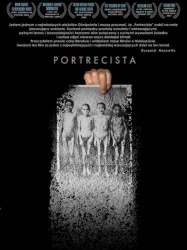
Portrecista (2005)
, 52minutesGenres Documentary
Themes Films about racism, Films about religion, Documentary films about the visual arts, Documentary films about racism, Documentary films about law, Documentary films about war, Documentary films about historical events, Documentaire sur une personnalité, Documentary films about religion, Political films, Films about Jews and Judaism, Documentary films about World War II
Rating78%





Portrecista (The Portraitist) examines the life and work of Wilhelm Brasse, who had been trained as a portrait photographer at his aunt's studio prior to World War II and passionately loved taking photographs. After his capture and imprisonment by the Nazis at Auschwitz concentration camp in 1940, at the age of 23, he was forced to take "identity pictures" of between approximately 40,000 to 50,000 other inmates between 1940 and 1945. With "courage and skill", documenting "cruelty which goes beyond all words ... for future generations", after his liberation at the end of World War II, Brasse "could not continue with his profession" and would never take another photograph.
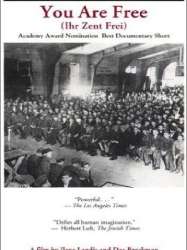
You Are Free (1983)
, 20minutesGenres Documentary
Themes Films about racism, Films about religion, Documentary films about racism, Documentary films about law, Documentary films about war, Documentary films about historical events, Documentaire sur une personnalité, Documentary films about religion, Political films, Films about Jews and Judaism, Documentary films about World War II
Rating67%





 Connection
Connection